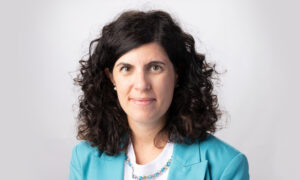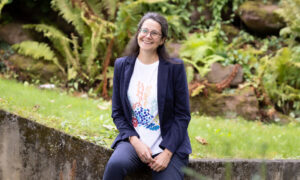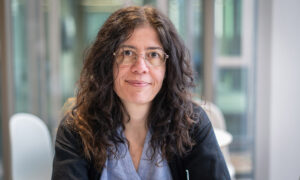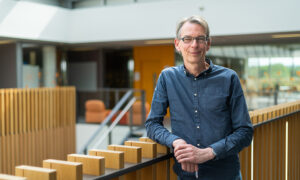
Welcome: Bastian Drees
The new Head of EMBL’s Szilárd Library reflects on the role of scientific libraries in the digital age
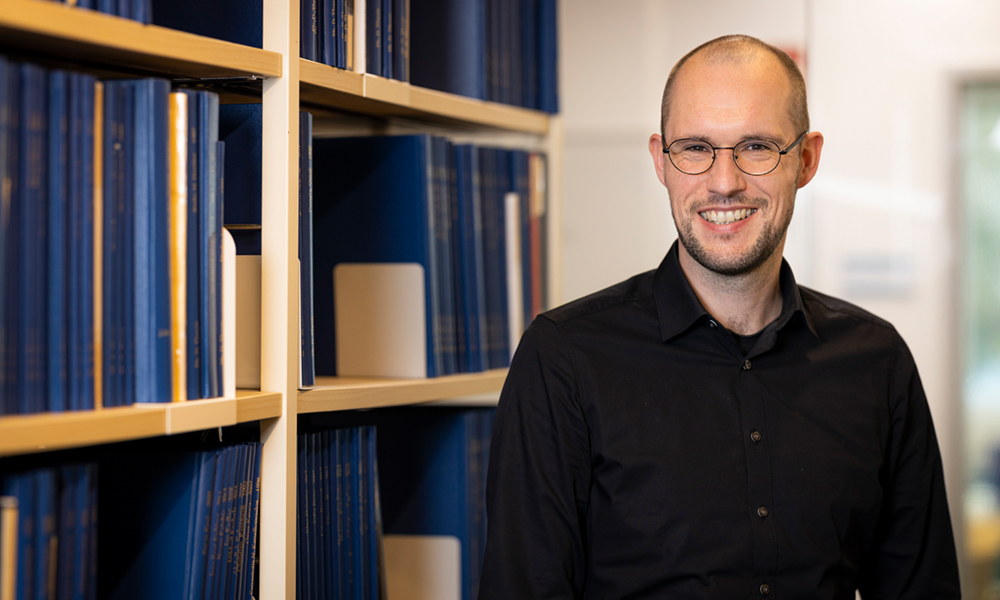
Bastian Drees is a biophysicist turned librarian, who joined EMBL in January as the new Head of Library. Here, he discusses the changing role of libraries and how they can help scientists organise and share their results.
Tell us about your background. What brought you to EMBL?
I studied physics in Münster and did a PhD in biophysics at Heidelberg University. I then decided to become a librarian, and completed a traineeship in Hannover and Munich. Afterwards, I worked for three years at the German National Library of Science and Technology (TIB) in Hannover. However, I wanted to come back to Heidelberg. With my background in biophysics and my experience as a librarian, the position at EMBL was a perfect match, because it combines these three factors: Heidelberg, bioscience, and the library.
Running a modern library is about much more than just books. Tell us more about that.
The topic came up in the early 2000s, beginning with how to organise research data. People realised that there’s much more to research output than texts: scientific software, images, audiovisual material, and 3D objects, for example. There’s no consistent view on how these materials should be treated, from both the scientist’s and librarian’s perspective. TIB founded the Competence Centre for Non-Textual Materials (KNM), and my focus was on finding solutions for audiovisual materials, data, and software. How can we preserve these objects and make them searchable and accessible? These questions are important in every branch of science, and apply also at EMBL.
What’s happening at the library at the moment?
We’re part of the Open Science working group, and I believe the library should play a crucial role in fostering Open Science at EMBL. We’re already providing counsel on topics related to open access publishing, and I think this could be extended to areas like research data management. These topics are becoming more and more relevant to both scientists and the library.
How will open access and open science affect the way science is done?
The movement started several years ago. Many questions on open access have already been solved, but the solutions have still to be implemented. However, it’s not only important to make information freely accessible, but also freely reusable by publishing it under open access licences. Here we need a change of culture, and we need to give incentives to scientists to make their research output as open as possible. That’s what open science means to me. Open access is a central, very important part, but it’s just a part of the whole open science movement.
Which new forms of science communication would you like to see researchers using more often?
I really like the concept of video abstracts, which are short teaser or trailer videos on a research article or project. The best videos are two or three minutes long and present the topic in a funny and entertaining, yet informative way to a broader community, including interested laypeople. I would also encourage scientists to record and publish their talks more often. Communicating science at conferences or workshops behind closed doors doesn’t make it available to the wider public. Recording talks can make it much easier for laypeople to follow scientific progress without having to read a paper.
How do you expect the role of libraries to change in the future?
That depends a lot on the type of library. Public libraries are completely different from a scientific or specialised library. Many libraries are turning more and more into workspaces, and books tend to move out of the library these days. Of course, digitalisation plays a major role. Apart from that, scientific libraries increasingly engage in providing services for the whole scientific process, from project planning and data management to everything around publishing. The traditional role of gathering, storing, and providing information remains the same, but the formats change.
Do you still enjoy reading books in your free time?
Yes, a lot, although I don’t have that much time any more, especially since my son was born. I’m currently reading Randall Munroe’s scientific self-help guide How To, Saša Stanišić’s book Herkunft [‘Origins’], which recalls his family’s emigration from Yugoslavia to Heidelberg, and Leo Szilárd’s collection of stories, The Voice of Dolphins. The combination of science, Heidelberg, and the library really is a recurring theme in my life.
